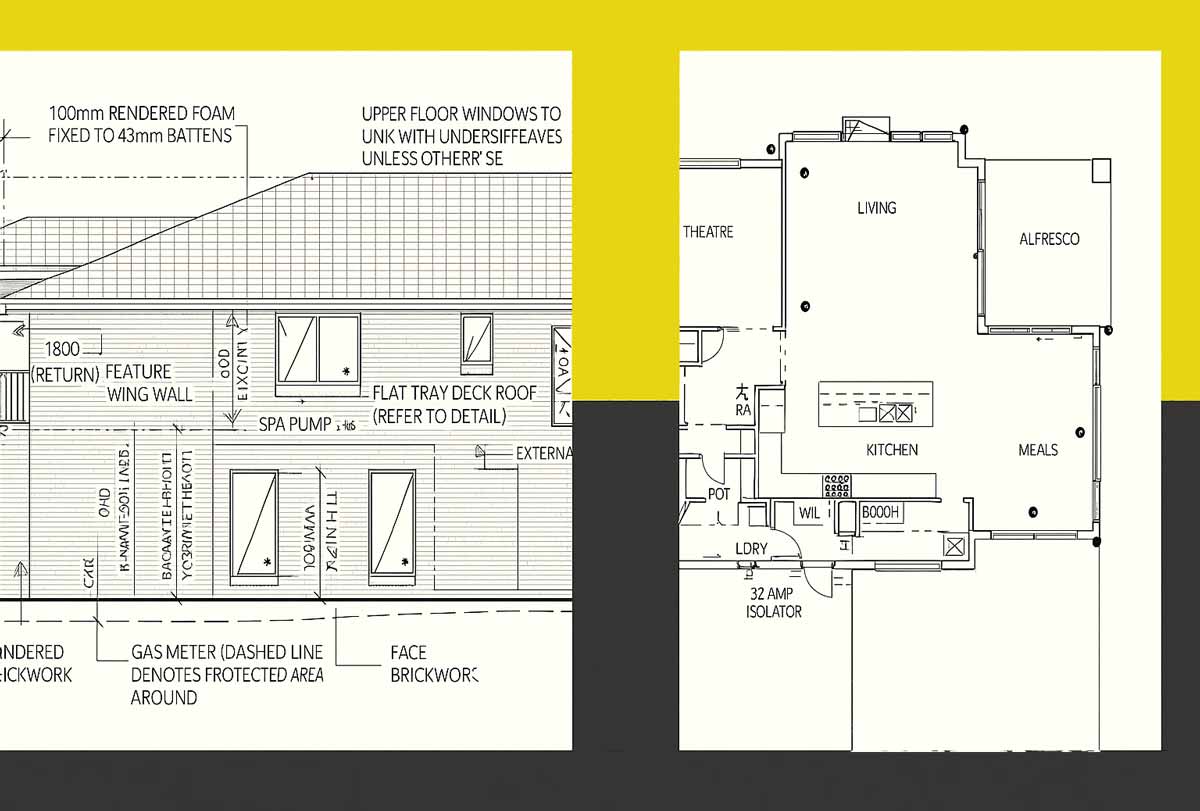Are you aware that your credit score can influence not just your loan approval, but also the affordability of your new home in Australia? It is one of the first thing lenders check when you’re buying your first home. For first time homebuyer or budget-conscious buyers, a good credit score can lead to lower interest rates and more manageable mortgage payments.
On average, you need from 500 to 700 credit score to buy a house, but it’s crucial to understand what these scores imply. With a good credit score, you are likely to qualify for better loan terms, lower interest rates, and higher borrowing limits, making homeownership more accessible and affordable.
From understanding what constitutes a good versus a bad credit score to exploring strategies to improve your financial standing, we’ll provide the insights you need for a successful home buying experience. Read this blog to learn what credit score you need to aim for and how it can impact your home buying budget.
What is a credit score?
A credit score or credit rating is a numerical representation of your creditworthiness, which indicates how likely you are to repay debts. It is calculated based on your financial history, including your payment habits, the amount of debt you have, and the length of your credit history.
In essence, a credit score helps lenders assess the risk of lending you money or offering you credit. The higher your credit score, the more creditworthy you appear to lenders, which can lead to better loan terms, lower interest rates, and easier approval for credit products like mortgages, car loans, or credit cards.
Credit scores typically range from 0 to 1200, depending on the credit reporting agency, with higher scores indicating better credit health.
There are three main credit reporting agencies in Australia—Equifax, Experian, and illion. Each of these credit bureaus calculates credit scores using slightly different methods, but all of them follow the same general range of 0 to 1200.
How is a credit score calculated?
Credit scores are calculated based on various factors that reflect your financial behaviour and history. Here’s a breakdown of how your credit score is typically calculated:
- Payment History (30-35%): This is the most important factor. It looks at whether you’ve paid your bills on time, including credit card payments, loans, and utility bills. Late or missed payments can significantly lower your score.
- Credit Utilisation Ratio (20-30%): This measures how much of your available credit you’re using. For example, if you have a credit card limit of $10,000, and you’ve used $3,000, your utilisation ratio is 30%. Keeping this ratio below 30% is generally considered good for your score.
- Length of Credit History (10-15%): The length of time you’ve been using credit also affects your score. A longer history of credit can boost your score, as it gives lenders more information about your long-term financial habits.
- Types of Credit (10%): This factor considers the different types of credit you have, such as credit cards, mortgages, personal loans, and auto loans. A mix of different types of credit can positively impact your score, as it shows you can manage various forms of credit responsibly.
- New Credit Inquiries (5-10%): Every time you apply for new credit, a credit inquiry is made, which gets recorded on your credit report. Too many inquiries in a short period can lower your credit score, as it may indicate that you’re taking on too much debt or are in financial distress.
- Total Debt (5-10%): The total amount of debt you owe across all credit accounts is also considered. Higher levels of debt can negatively impact your score, especially if your debt-to-income ratio is high.
- Negative Information: Factors like bankruptcies, defaults, and court judgements can drastically reduce your credit score. This negative information can stay on your credit report for several years, making it harder to improve your score during that time.
Want a stress-free home building experience? Whether you are looking for ground up build or knockdown rebuild, from initial design to final touches, we make it seamless and enjoyable. Book a consultation to know how we do it.
Don't Settle for Less—Build Excellence with Dhursan
What is a good credit score needed to buy a house?
In Australia, a credit score range between 500 and 700 is considered average. This range may still allow you to qualify for a mortgage, but you might face higher interest rates and less favourable terms. However, 620 is often considered a minimum credit score for most conventional loan.
A credit score above 700 is regarded as very good, and above 800 is considered excellent. With a score in this range, you’re more likely to receive competitive interest rates and favourable loan terms, making it easier to secure a mortgage with better conditions.
How much can I borrow with different credit score?
The amount you can borrow for a home loan can vary significantly based on your credit score, among other factors like:
- Income and Debt-to-Income Ratio: Your income and debt-to-income ratio are critical in determining how much you can borrow. Higher income and lower debt levels generally allow for larger loan amounts.
- Down Payment: A larger down payment can improve your borrowing capacity and reduce the impact of a lower credit score.
- Lender Policies: Different lenders have varying criteria, so the exact amount you can borrow may differ based on their specific requirements.
Also Read: How much deposit do I need to buy house in 2024?
Can I buy a home with a bad credit score in Australia?
A credit score below 500 is generally considered poor. A low credit score can significantly impact your ability to secure a home loan on standard terms. However, it doesn’t necessarily mean you can’t buy a house at all.
Options for Buyers with Bad Credit:
- Specialist lenders: These lenders cater to borrowers with less-than-perfect credit. While they often have higher interest rates, they offer opportunities for those with a poor credit score.
- Guarantor loans: If you have a family member or friend with good credit, they might be willing to guarantee the loan, improving your chances of approval.
How long does bad credit last in Australia?
As per oaic.gov.au, serious negative information about your credit can stay on your credit report for up to seven years. Here’s a more detailed explanation of some key negative credit events and their impact:
1. Payment Defaults: A payment default occurs when you fail to make a payment on a credit account, and the creditor sends you a formal notice requesting payment. This negative information can remain on your credit report for 5 years from the date of listing. Having defaults on your report can significantly impact your ability to obtain credit in the future.
2. Court Judgements: If a creditor takes legal action against you and obtains a court judgement for unpaid debts, this information can stay on your credit report for 5 years from the date of judgement. Court judgements are serious negative marks that can affect your creditworthiness.
3. Personal Insolvency (Bankruptcy): If you file for bankruptcy, this information will be recorded on your credit report. Bankruptcy can remain on your credit report for either 5 years from the date you became bankrupt or 2 years from the date you were discharged from bankruptcy, whichever is later. Bankruptcy has a significant negative impact on your credit score and ability to access credit.
4. Debt Agreements: Debt Agreements are formal agreements to settle debts with creditors. These agreements can impact your credit report for 5 years from the date the agreement was made or 2 years from the completion date, depending on which is later.
5. Serious Credit Infringements: Serious credit infringements, such as fraud or obtaining credit through false information, can stay on your credit report for up to 7 years. These are severe negative marks that can have lasting consequences on your creditworthiness.
6. Other Negative Information: Late payments, credit enquiries, and repayment history details can also impact your credit report for varying periods, typically ranging from 1 to 5 years. It’s essential to maintain a good repayment history and limit unnecessary credit enquiries to avoid negative impacts on your credit score.
From design to build, get what you’ve always envisioned with us. Start your journey and experience unparalleled quality, personalised service, and exceptional craftsmanship. Reach out to us today.
Transform Your Vision into Reality with Dhursan Construction
How does your credit score affect your mortgage interest rates?
Your credit score is a crucial factor in determining your mortgage interest rate. Lenders view it as an indicator of your financial responsibility and your likelihood of repaying the loan.
- Higher credit score, lower interest rate: A high credit score (typically 700 or above) often qualifies you for the best interest rates available.
- Lower credit score, higher interest rate: A poor credit score (below 600) can result in significantly higher interest rates, as lenders perceive you as a higher risk borrower.
Even a small difference in your credit score can impact the interest rate you’ll pay over the life of your mortgage, resulting in thousands of dollars in savings or additional costs.
Additionally, there are different types of home loan available for different credit score, which are:
| Loan Type | Definition | Minimum Credit Score |
|---|---|---|
| Conventional Fixed-Rate Mortgage | A standard mortgage with a fixed interest rate that remains constant throughout the loan term. Ideal for those with good to excellent credit. | 620-700 |
| FHA Loan | A government-backed loan designed for lower-credit borrowers and first-time home buyers. Offers lower down payment requirements. | 500-580 |
| VA Loan | A loan backed by the Department of Veterans Affairs, available to veterans, active-duty service members, and certain members of the National Guard. Often requires no down payment. | 580 |
| USDA Loan | A loan backed by the U.S. Department of Agriculture, available for properties in eligible rural areas. Typically, requires no down payment and is designed for low-to-moderate income borrowers. | 640 |
| Jumbo Loan | A jumbo loan is a type of mortgage designed to finance properties that exceed the borrowing limits of conventional conforming loans. Because these loans involve higher amounts, they often require a strong credit profile, a larger down payment, and a more rigorous approval process. | 700 |
| Non-Conforming Loan | Unlike conventional loans, non-conforming loans allow lenders to consider other forms of evidence regarding the borrower’s ability to repay the loan, such as a larger deposit or alternative financial documentation. | 620-700 |
How to Improve Your Credit Score?
Don’t worry if your credit score isn’t where you’d like it to be; there are things you can do to raise it. You can increase it by doing the following:
- Timely Repayment of Debts: Your payment history is one of the most significant factors affecting your credit score. Ensure that you pay your bills, credit card balances, and loan repayments on time.
- Credit Utilisation Ratio: This is the ratio of credit you’re using to your total credit limit. Maintaining low balances on credit cards in relation to your credit limit will help improve your score.
- Length of Credit History: The longer you have a history of credit, the better. Keeping older credit accounts open, even if you don’t use them regularly, can help maintain a longer history of credit.
- Number of Credit Inquiries: Each time you apply for credit, an inquiry is added to your credit report. Multiple inquiries in a short period can negatively impact your score, so it’s wise to limit new credit applications.
- Diversified Credit Portfolio: A diverse mix of credit, such as credit cards, personal loans, and a mortgage, can improve your score, but it’s important to manage it responsibly.
Conclusion
Although there isn’t a fixed credit score requirement for buying a house in Australia, maintaining a good credit score significantly boosts your chances to get a home loan with favourable terms. By responsibly managing your credit, paying bills on time, reducing debts, and checking your credit score on time, you can elevate your credit score and advance towards your homeownership aspirations.
Remember, it’s not just about reaching the minimum credit score requirements; striving for excellence in your credit profile can make the home buying process easier and more affordable. If you want to make your homeownership dreams a reality and are looking for a custom house builder, look no further than Dhursan Construction. From helping you through the complexity of obtaining a loan to ensuring that your ideal house is built to your exact specifications, our team is here to help you every step of the way. Contact us today.




